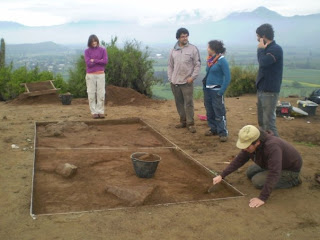
Ken Robison gives us an interesting lecture about the role of creativity in school. According to him, the school system would not be adequate enough to develop the huge potential of creativity that exists in children, suppressed.
As Ken Robinson says, schools kill creativity. According to Robinson, this should be the orientation of the school system since the late nineteenth and early twentieth century, which would be geared to the needs of the industrial economy, a concern of being "skilled labor" in which people not develop integrally physical and intellectual.
For Robinson, this is a serious problem. Education would serve the "economy" and not to serve the full development of human capabilities. According to him, it is necessary to exploit all the capabilities of human creativity, building an educational system in which each child can develop their full physical and intellectual capabilities. For Robinson, this can be achieved by understanding that human intelligence must be understood from a broad perspective, realizing their emotional side, formed in the social interaction of individuals.
In conclusion, the current structure of the education system should be modified. Their knowledge structures are oppressive, being unable to fully develop the intelligence of children. Reeamplazado be a new type of education system, open to the needs of developing emotional, intellectual and physical persons.
As Ken Robinson says, schools kill creativity. According to Robinson, this should be the orientation of the school system since the late nineteenth and early twentieth century, which would be geared to the needs of the industrial economy, a concern of being "skilled labor" in which people not develop integrally physical and intellectual.
For Robinson, this is a serious problem. Education would serve the "economy" and not to serve the full development of human capabilities. According to him, it is necessary to exploit all the capabilities of human creativity, building an educational system in which each child can develop their full physical and intellectual capabilities. For Robinson, this can be achieved by understanding that human intelligence must be understood from a broad perspective, realizing their emotional side, formed in the social interaction of individuals.
In conclusion, the current structure of the education system should be modified. Their knowledge structures are oppressive, being unable to fully develop the intelligence of children. Reeamplazado be a new type of education system, open to the needs of developing emotional, intellectual and physical persons.






